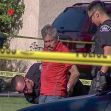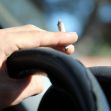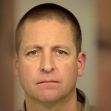A drunk driving suspect who caused a fatal accident was given a warrantless search of his blood after being taken by helicopter to a hospital. On his way to surgery, police asked for and received the sample. During his trial for second-degree murder and gross vehicular manslaughter while intoxicated, he claimed the blood draw violated his Fourth Amendment rights. The Superior Court disagreed, and the Court of Appeals upheld the decision, citing exigent circumstances.
A unanimous three-judge panel of Division Eight (Los Angeles County) of the Second Circuit of the Court of Appeal for the State of California comprised of Judge Monica F. Wiley, Associate Justice Elizabeth A. Grimes, and Judge Albert Harutunian III heard the case and upheld the verdict of Los Angeles Superior Court Judge Hayden A Zacky. In an opinion written by Wiley, the panel ruled that exigent circumstances were present and that they justified the blood draw.
Those exigent circumstances were the result of a fatal accident and the medical condition of the semi-conscious driver who was seriously injured and on his way to life-saving surgery when his blood was drawn.
Plaintiff-appellant Alberic Roland Nault had a serious drinking problem. He was arrested and convicted of driving under the influence (DUI) four times, beginning in 2001. He was ordered to attend a Hospital and Morgue Program (HAM), which showed him the dire consequences of drunk driving. HAM was a collaboration of hospitals, the Department of Coroners, the District Attorney’s Office and the Los Angeles Superior Courts.
While at HAM, he attended alcohol awareness class and visited hospitals and morgues so he could see what happens to drunk driving victims. He also completed two other court ordered-alcohol awareness programs. None of them worked.
In addition, after one of his drunk driving episodes, he was arrested, the pick-up he was driving was impounded, and his license was suspended. When the tow-yard refused to give a truck to a man with a suspended license, Nault paid someone with a valid license $100 to get it for him.
The night of the fatal accident, driving that truck on a dark and narrow road, he tried to pass an 18-wheeler truck. He was going 70 miles per hour in a 55 zone. His attempt to pass failed, and he hit a Honda coming from the other direction. That car burst into flames and the driver was killed.
Another driver pulled the unconscious Nault from his burning truck and called for help. At about 7:30 p.m., California Highway Patrol Officer (CHP) Carlos Burgos-Lopez arrived at the accident site. He found Nault semi-conscious and in an ambulance. When questioned, Nault admitted that he had been drinking beer.
Burgos-Lopez went to his patrol car to get a breathalyzer to measure the amount of alcohol in Nault’s breath, but he did not have time to use it because a helicopter arrived and medics began his emergency transport to a hospital.
When the helicopter took off, the CHP officer stayed behind to investigate. He found skid marks that allowed him to determine that the accident was caused by Nault’s speeding and his trying to pass without adequate room to do so safely. Meanwhile, CHP Office Riley Beckinger was assigned to the case. He arrived at the scene just after 9 p.m. and found an unconscious Nault who “smelled of alcohol… and the smell was strong.”
When told that Nault was soon headed for surgery, Beckinger knew he did not have time to get a warrant, so he asked a nurse to draw samples of his blood and assigned another officer to get a warrant. Later, lab test results showed that Nault had a blood alcohol level of 0.14 percent – nearly twice the legal limit.
At trial, Nault challenged the admissibility of the blood evidence, claiming it was inadmissible because it was obtained without a warrant in violation of the Fourth Amendment, which protects people against unreasonable searches and seizures. Los Angeles County Superior Court Judge Zacky ruled that “exigent circumstances justified the blood draw,” and a jury convicted Nault of one count of second-degree murder and gross vehicular manslaughter while intoxicated. Nault also pleaded no contest to an additional count of driving with a suspended license, and he admitted to his four prior drunk driving convictions. He was sentenced to 15 years to life in state prison for his second-degree murder offense and given a concurrent term for his other offenses. He appealed.
In the appellate court opinion, Judge Wiley stated, “Federal law governs us,” and he went on to explain those laws. First, he cited a Supreme Court case that found, “A warrantless blood draw is presumed unreasonable unless justified by a recognized exception.” Another case explained, “One such exemption is exigent circumstances, which arise when an emergency makes law enforcement needs so compelling that a warrantless search is objectively reasonable.” He also said that “dissipating blood alcohol evidence” and “pressing health, safety or law enforcement” take priority over a warrant application.”
Finally, he cited a 2019 U.S. Supreme Court Opinion, Mitchell v. Wisconsin, that said that the “Fourth Amendment almost always permits a warrantless blood test when police officers do not have a reasonable opportunity for a breath test before hospitalization.”
In conclusion, he said that Nault himself created the exigency and added that he was unconscious and that his “medical needs left no time for a breath test.” He did, however, stay the concurrent sentence because it unlawfully imposed “multiple punishments for the same act.”






